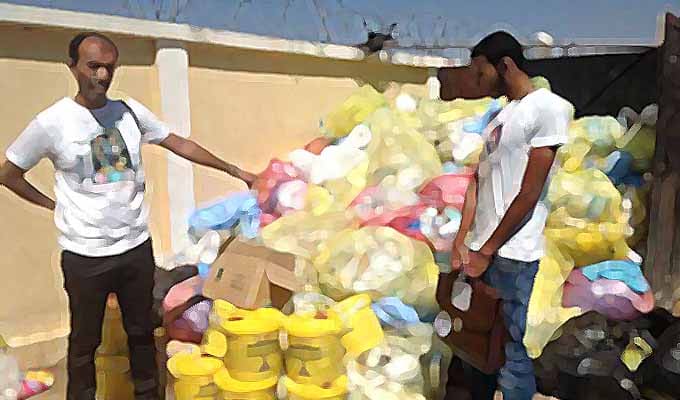The national chambers of plastic waste collectors and recyclers, under the Tunisian Union of Industry, Trade and Handicrafts (UTICA), issued a warning on Tuesday regarding the potential collapse of the “Public System for the Collection and Recovery of Used Packaging” (ECO-LEF).
Speaking at a press conference held in Tunis, the president of the National Chamber of Plastic Waste Collectors, Hamza Chaouch, called on the President of the Republic to intervene and save the system.
He stressed the deterioration of the ECO-LEF system, particularly over the past two years, recalling that while the sector included nearly 180 companies in 2004, it now counts only 30, including 10 collectors and 20 recycling companies.
Chaouch pointed out that companies participating in the ECO-LEF system are facing numerous challenges threatening their sustainability, including the rising cost of sourcing used plastic and competition from the informal sector.
For her part, Hanen Silimi, President of the National Chamber for Plastic Waste Recycling, reminded that the ECO-LEF system is financed by the Pollution Abatement Fund (FODEP), which is supported by a 7% contribution from industrial producers.
She called for identifying solutions to preserve and enhance this vital system, highlighting its environmental and socio-economic significance.
Both representatives urged a revision of the price paid for used plastic and the opening of a dialogue between government authorities and ECO-LEF stakeholders, emphasizing that recycling companies are willing to cover the price difference.
They also revealed that no response had been received from the Director General of the National Waste Management Agency (ANGED) or the Ministry of the Environment regarding the official letters they had sent.
“Given his inability to resolve the sector’s issues, the head of ANGED should resign,” they stated, referencing President Saïed’s warning that “any failure will be sanctioned, and any official who fails to fulfill their duties will be removed within the hour.”
It is worth noting that Tunisia generates about 2.5 million tonnes of waste annually, 10% of which is plastic, according to the Ministry of the Environment. Around 500,000 tonnes of plastic are dumped into the sea each year, causing significant environmental damage both to the country and marine ecosystems.
According to the World Wide Fund for Nature (WWF), Tunisia is one of the main plastic producers in the Mediterranean. Approximately one billion plastic bags are consumed annually in Tunisia, of which 80% are neither collected nor recycled. The WWF estimates that plastic pollution results in annual losses of about 60 million dinars for Tunisia.
The ECO-LEF system is governed by Decree 97-1102 of June 1997, amended by Decree 2001-843 of April 2001, which sets the conditions and procedures for the collection and management of used bags and packaging materials.
ECO-LEF aims to reduce landfill waste from packaging, minimize the environmental impact of packaging waste, and promote recycling and recovery. It targets soft drink and water bottles (PET), detergent bottles and containers (PVC), plastic films and bags (PP), and metal cans (aluminum and steel).
Source: webmanagercenter




